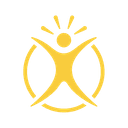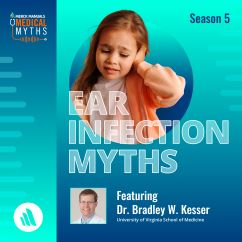Topic Resources
Several conditions may occur even among healthy people while in transit.
Motion Sickness
Motion sickness (also known as car, sea, train, or air sickness) is often triggered by vibration and movement and is made worse by warmth, anxiety, hunger, or overeating.
Symptoms are nausea, vomiting, sweating, and dizziness.
Preventive measures include moderating intake of food, fluids, and alcohol, fixing the eyes on a stationary object or on the horizon, lying down and keeping the eyes closed, and getting some fresh air. A scopolamine patch or an antihistamine (such as cyclizine, dimenhydrinate, diphenhydramine, or meclizine) may be helpful, especially if taken before travel. However, these medications can cause drowsiness, dry mouth, confusion, falls, and other problems in older people.Preventive measures include moderating intake of food, fluids, and alcohol, fixing the eyes on a stationary object or on the horizon, lying down and keeping the eyes closed, and getting some fresh air. A scopolamine patch or an antihistamine (such as cyclizine, dimenhydrinate, diphenhydramine, or meclizine) may be helpful, especially if taken before travel. However, these medications can cause drowsiness, dry mouth, confusion, falls, and other problems in older people.
Blood Clots While Traveling
Blood clots (deep vein thrombosis) can occur when people sit for long periods during air, rail, bus, or car travel. Blood clots are more common among people who
Are older
Are overweight
Smoke cigarettes
Have cancer
Are taking estrogen (as estrogen supplements or in contraceptive medications)
Are pregnant
Have recently had surgery
Have had blood clots
Have been inactive or immobile
Blood clots form in leg or pelvic veins and occasionally dislodge and travel to the lungs (called pulmonary emboli). Some blood clots in the legs do not cause symptoms, whereas others cause cramping, swelling, and color changes of the calves and feet. Pulmonary emboli are much more serious than blood clots in the legs. People may first develop a sensation of not feeling well, followed by shortness of breath, chest pain, or fainting. Pulmonary emboli are sometimes fatal.
The risk of developing blood clots may be reduced by
Changing positions frequently
Straightening and moving the legs frequently while seated
Drinking enough fluids
Getting up to walk and stretch every 1 to 2 hours
Prolonged leg crossing may decrease leg circulation and should be avoided. Avoiding caffeine and alcohol and wearing elastic support stockings also reduce risk.Prolonged leg crossing may decrease leg circulation and should be avoided. Avoiding caffeine and alcohol and wearing elastic support stockings also reduce risk.
Ear and Sinus Pressure While Flying
Ear and sinus pressure while flying is the result of changes in air pressure in the airplane (cabin pressure). Normally as an airplane takes off and climbs (ascends), cabin pressure decreases, and small pockets of air trapped in the sinuses and middle ear expand, leading to ear pressure, ear popping, or both and to mild sinus pressure or discomfort. As an airplane descends, cabin pressure increases relative to pressure in the sinuses and middle ear, and similar symptoms occur. These mild sensations usually disappear as air pressure in the sinuses and ears equalizes with cabin pressure.
In people with allergies, sinus problems, and head colds, the passages that connect the ears and sinuses to the nose and mouth become inflamed and sometimes blocked by mucus, which prevents air pressure from equalizing normally. People with these problems may experience significant discomfort. Swallowing (particularly while holding the nose closed) frequently or yawning during descent, taking decongestants before descending, or blowing hard against a closed mouth and pinched nostrils helps equalize air pressure. Some people suck on hard candies during descent. These actions are normally sufficient to relieve minor ear and sinus discomfort.
Untreated dental problems or teeth that were subjected to recent dental procedures may become painful when air pressure changes.
Children
Children are particularly susceptible to the pain of unequal air pressure. They should chew gum, suck hard candy, or be given something to drink during ascent and descent to encourage swallowing. Babies can be breastfed or given a bottle or pacifier.
Sleep Disturbance (Jet Lag)
Sleep disturbance after air travel (jet lag) is common when people rapidly travel across more than 3 time zones. Sleep disturbance does not occur with sea, rail, or car travel because travelers have time to adjust to time zone changes. The most obvious symptom is fatigue on arrival. Other symptoms include
Irritability
Difficulty sleeping (insomnia)
Headache
Difficulty concentrating
Jet lag can be minimized by starting to adjust sleep and wake times 1 or 2 days before departure to coincide with those of the destination time zone. In flight, a person should avoid caffeine and excessive alcohol. Managing exposure to light can also help travelers adjust to a new time zone.Jet lag can be minimized by starting to adjust sleep and wake times 1 or 2 days before departure to coincide with those of the destination time zone. In flight, a person should avoid caffeine and excessive alcohol. Managing exposure to light can also help travelers adjust to a new time zone.
Westward travel
People traveling westward tend to awaken earlier and feel tired earlier than they should by local time. For example, if people who normally wake up at 7 AM and go to bed at 11 PM travel 3 time zones west, they tend to awaken at 4 AM local time and feel the need for sleep by 8 PM. To adjust, people should try to get bright sunlight in the late afternoon and try to stay up until the appropriate bedtime.
Eastward travel
People traveling eastward tend to awaken later and stay awake longer than they should by local time. For example, if people who normally wake up at 7 AM and go to bed at 11 PM travel 3 time zones east, they tend to awaken at 10 AM local time and not feel the need for sleep until 2 AM. To adjust, people should get bright sunlight in the early morning. Those who had an overnight flight should try to remain physically active until evening and try not to nap.
Short-acting sedatives (sleeping pills) may help people fall asleep at the appropriate local time after eastward travel. However, sedatives may have side effects, such as daytime drowsiness, amnesia, and nighttime insomnia. Long-acting sedatives, such as diazepam, can cause confusion and falls in older people and should be avoided.) may help people fall asleep at the appropriate local time after eastward travel. However, sedatives may have side effects, such as daytime drowsiness, amnesia, and nighttime insomnia. Long-acting sedatives, such as diazepam, can cause confusion and falls in older people and should be avoided.
The hormone melatoninmelatonin regulates the sleep-wake cycle. Some doctors have recommended using melatonin supplements after eastward travel to reset the body’s internal clock for sleep. Although some travelers report melatonin is beneficial, its effectiveness and safety have not been thoroughly proved.regulates the sleep-wake cycle. Some doctors have recommended using melatonin supplements after eastward travel to reset the body’s internal clock for sleep. Although some travelers report melatonin is beneficial, its effectiveness and safety have not been thoroughly proved.
Dehydration While Flying
Dehydration while flying is common because of the low humidity in airplanes. Dehydration tends to affect older people and people who have certain medical conditions, such as diabetes, or who take medications used to increase sodium and water excretion in the urine (diuretics). The main symptoms are light-headedness, drowsiness, confusion, often thirst and dry mouth, and, occasionally, fainting.
Dehydration can be prevented by drinking fluids and by avoiding alcohol and caffeine. Dry skin can be treated with moisturizers.Dehydration can be prevented by drinking fluids and by avoiding alcohol and caffeine. Dry skin can be treated with moisturizers.
Spread of Infection During Travel
Spread of infection on airplanes and cruise ships often receives media attention but is relatively uncommon. Although colds are probably the most common infection, concern is greatest for
Travelers can minimize their risk of influenza by making sure they have received the most current influenza vaccine. They can minimize their risk of diarrhea and some other infections by washing their hands frequently and using alcohol-based hand sanitizers. Some cruise ships offer antibiotics to passengers who have been in close contact with passengers who have bacterial infections.
Minor Injuries During Travel
Minor injuries are common during travel. Unaccustomed lifting of heavy luggage is a common cause of shoulder injuries. Luggage falling out of overhead storage bins can cause other significant injuries. Airplane turbulence may cause motion sickness or injury. While seated, passengers should keep their seat belts fastened at all times. During ship travel, injuries can be prevented by wearing shoes that provide good traction on wet surfaces, using handrails and removing sunglasses before entering ship stairwells, and remaining alert in unfamiliar surroundings. A flashlight is useful for preventing falls at night.
Anxiety
Anxiety affects many people who travel. Fear of flying, fear of confined spaces, and worries about medical conditions worsening during flight are common sources of anxiety. Anxiety can cause insomnia, making jet lag worse. People may hyperventilate, often with symptoms such as chest pain, trouble breathing, muscle spasms, and tingling in the arms and hands and around the mouth. The company of a seasoned traveler or caregiver may help relieve anxiety. Cognitive-behavioral therapy and desensitization programs or hypnosis may also help. Sedative or antianxiety medications, such as zolpidem or alprazolam, taken before and sometimes during the trip, may be of benefit (see table affects many people who travel. Fear of flying, fear of confined spaces, and worries about medical conditions worsening during flight are common sources of anxiety. Anxiety can cause insomnia, making jet lag worse. People may hyperventilate, often with symptoms such as chest pain, trouble breathing, muscle spasms, and tingling in the arms and hands and around the mouth. The company of a seasoned traveler or caregiver may help relieve anxiety. Cognitive-behavioral therapy and desensitization programs or hypnosis may also help. Sedative or antianxiety medications, such as zolpidem or alprazolam, taken before and sometimes during the trip, may be of benefit (see tableMedications Used to Treat Anxiety Disorders).
More Information
The following English-language resource may be useful. Please note that THE MANUAL is not responsible for the content of this resource.
Centers for Disease Control and Prevention: Travelers' Health


